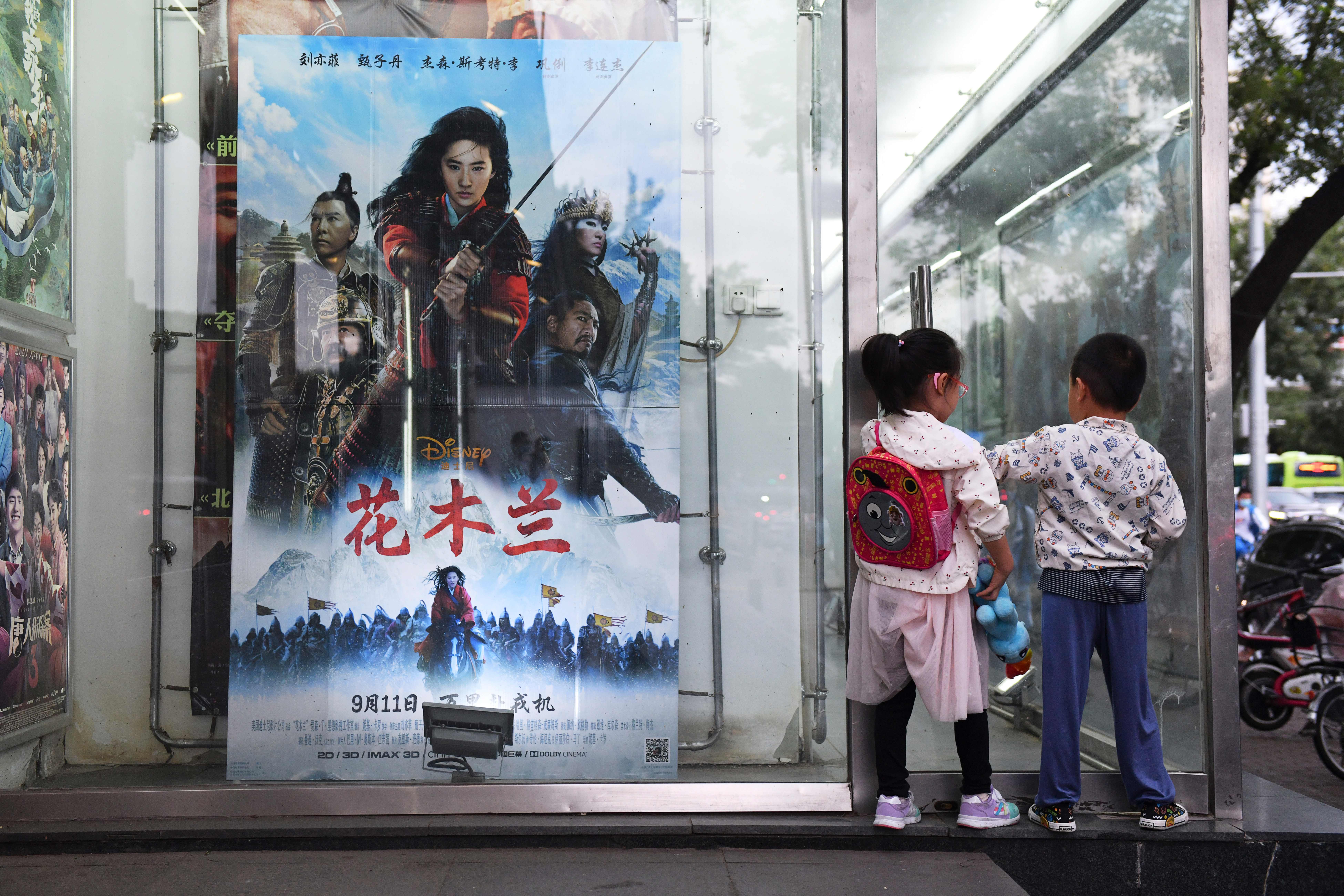Silver Screen, Red Scare
The tale of how Hollywood and Red China came together may be fascinating, but it is already out of date.

Red Carpet: Hollywood, China, and the Global Battle for Cultural Supremacy, by Erich Schwartzel (Penguin Press, 2022), 400 pages.
When Tom Cruise chases the bad guys through the streets of Shanghai in Mission Impossible III (2006), in the original cut, the city’s streets are topped by clotheslines hanging from apartment buildings. Paramount Pictures cut the clotheslines from the final version at the behest of Chinese officials, who thought it made Shanghai look backward. Erich Schwartzel makes the obvious pun in his fine new history of Hollywood in China, Red Carpet: “The censors made sure no one could see China’s dirty laundry.”
His other examples of censorship are not so droll. The zombie movie World War Z (2013) cut a scene where a character explains that the zombie outbreak originated in China. Men in Black 3 (2012) cut a scene where Will Smith uses his memory-erasing neuralyzer on a group of Chinese bystanders, presumably because it invited comparison to Chinese Internet censorship. The film bureau doesn’t explain its decisions, so the motivation behind its cuts is a matter of speculation.
Schwartzel’s story begins in 1994, when Beijing first allowed American films to be shown in China at a rate of ten movies per year. The relationship between Hollywood and Beijing blossomed, and China is now the largest film market in the world. Studios are wary of doing anything to jeopardize their access to a country where billion-dollar grosses are routine. If that means scrambling in post-production to change the invaders in the 2012 Red Dawn remake from Chinese to North Korean, so be it.
This is a story full of moral compromises, with innocent casualties along the way. Richard Gere adopted the Tibetan cause as his personal human rights crusade in the 1980s, and his reward was to be blacklisted by the major studios. He is still bearing the consequences today. “Several years ago, he was attached to star in an independently financed movie that was to be directed by a Chinese director who had no plans to show the film in China,” Schwartzel writes. “Two weeks before shooting began, the director called Gere on a secure line. ‘I can’t do it,’ he said. If he made a movie with Gere, the director and his family would never be permitted to leave China again.”
What do these American film executives tell themselves? According to Schwartzel, it varies. Some are purely amoral, people who don’t care about the politics as long as the money is good. Renny Harlin, the Die Hard 2 director who picked up and moved to China in 2014, seems to fall into that category. Others construct more elaborate alibis.
Gerry Lopez was CEO of AMC Entertainment Holdings when the theater chain was considering an acquisition offer from the Chinese conglomerate Dalian Wanda. Regulators at the Committee on Foreign Investment in the United States, which had the power to block the sale, asked Lopez if he thought there was any danger in having a foreign company control America’s second-largest chain of movie theaters. Couldn’t they fill cineplexes with Chinese propaganda? Not unless they wanted to go out of business, Lopez retorted.
Lopez defended the sale—which CFIUS approved in 2012—by downplaying its consequences. American audiences are too sophisticated to be taken in by Chinese propaganda, he implied, and the Chinese are smart enough not to try the heavy-handed tactics they use at home on American viewers. Even if that were true (and it is not), Lopez underestimates the power that China accrues from gaining control over various chokepoints in the movie industry, from investment to distribution.
The tale of how Hollywood and Red China came together may be fascinating, but, Schwartzel explains, it is already out of date. This is a book about the fall of Hollywood in China. Recently, the Chinese government started rejecting more and more American titles without explanation, and the movies that do make it through aren’t bringing in nearly as much in ticket sales as they used to.
The big studios keep trying to guess what they are doing wrong. Should they cast more Chinese actors? Or stick with homegrown megastars? Millions of man hours have been devoted to figuring out why Kung Fu Panda was such a hit in China and why the live-action Mulan was such a flop.
Subscribe Today
Get daily emails in your inbox
The answer is probably very simple. There is nothing Hollywood could have done one way or the other; China had just learned all they had to teach. China used to have quite a weak domestic film industry, plagued by low production quality and amateurish scripts. Actual dialogue from a Chinese movie quoted by Schwartzel: “We could increase the cooperation in archaeological research between China and India. That would be in line with the One Belt One Road policy.” “Very well said!”
They have improved. Schwartzel quotes one Chinese executive explaining the rise of his country’s domestic film industry: “For years, Chinese moviegoers have been eating French cuisine in the form of art-house films, hamburgers in the form of American blockbusters, or broccoli in the form of state-produced propaganda. ‘It turned out that all Chinese people wanted was a bowl of noodles,’ he said—cinematic comfort food from their own culture.”
In all likelihood, Hollywood is simply learning what so many other American industries have come to understand about China and technology transfer: Once the Chinese can replicate your product for themselves, your usefulness to them is at an end.